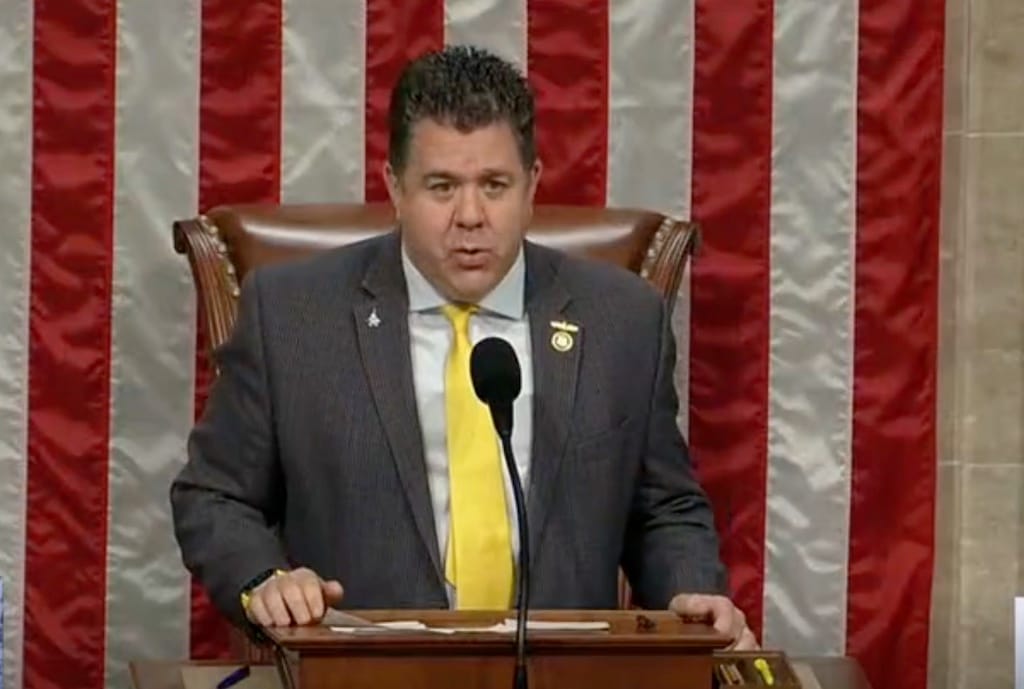
March 22, 2024 – The House of Representatives voted 286-134 to pass a $1.1 trillion spending package on Friday morning, omitting funding for the Affordable Connectivity Program and the ‘Rip-and-Replace’ initiatives.
The chamber turned back appeals from 33 Democratic and Independent senators urging congressional leaders to address the omission of the programs which have strong bipartisan support among voters in the must-pass FY 2024 minibus.
With April set to be the final fully-funded month of the ACP. And with Congress having only provided 39.5 percent of funding needed to reimburse providers for the cost of ripping out and replacing Chinese-made telecommunications equipment under the Secure and Trusted Networks Program of 2019, pushback against these exclusions has come swiftly from advocates.

“We stand ready to work with you in a bipartisan way to stave off the funding shortfalls for both of these critical initiatives, including how to pay for new investments in each,” reads the Senators’ letter sent to House and Senate leaders last week.
With the deadline for the Senate to decide on the funding minibus set for midnight Friday to avert a partial government shutdown, time to include funding for these initiatives has run out. Though, Senate rules permitting a single lawmaker to delay a vote could extend proceedings into Saturday.
President Biden had initially requested $6 billion for the ACP, and $3 billion for Rip-and-Replace in his FY 2024 budget released last October.
In response to the release of the Further Consolidated Appropriations Act of 2024, Gigi Sohn, representing the Affordable Broadband Campaign, expressed profound disappointment regarding the exclusion of funding for the ACP from the minibus spending package.
Sohn highlighted the consequences of congressional inaction, emphasizing that more than 23 million families stand to lose their broadband subsidies in May. In the statement, she lamented the political maneuvering that jeopardizes the program, which she said will force approximately 60 million Americans to confront difficult choices between internet access and essential needs like food, rent, and utilities.
“It’s embarrassing that a popular, bipartisan program with support from nearly half of Congress will end because of politics, not policy,” Sohn said.
The program, which offers $30-75 monthly subsidies for internet access, had strong bipartisan support among 78 percent of voters who wanted continuation of the program, according to a national survey conducted by Public Opinion Strategies and RG Strategies. This sentiment includes 64 percent of Republicans, 70 percent of Independents, and 95 percent of Democrats.

Regarding the lack of funding for the Rip-and-Replace program, Competitive Carriers Association CEO Tim Donovan warned of impending consequences, including reduced wireless coverage across the United States, as carriers are forced to make difficult decisions about service reductions, he said in a Thursday statement.
Despite bipartisan support for Rip-and-Replace, the lack of funding could cause potential harm, especially for individuals in need of emergency services, Donovan said. Of the $3.08 billion shortfall the program is experiencing, Donovan said “Congress created this national security mandate, and it is past time for Congress to fund it.”
While President Biden has incorporated measures in the proposed FY2025 budget to guarantee funding for the ACP through 2025, advocates for the program have begun to explore alternative funding sources.
With the ACP facing uncertain prospects, Sohn urged restructuring the Universal Service Fund to establish a lasting funding mechanism for a broadband affordability plan, in her statement sent via email Thursday.
Additionally, Public Knowledge, along with 24 other public interest and consumer advocacy groups, is urging Congress to reinstate the Federal Communications Commission’s spectrum auction authority to support the ACP. By directing $7 billion of the projected revenue from these auctions to the ACP, the groups argued in a Thursday release that millions of low-income households could maintain access to high-speed internet, crucial for full participation in modern society.
The letter sent co-signed by 33 Senators last Friday outlines various proposals for potential funding sources to close the funding gaps for both the ACP and the Secure Networks Program, ranging from spending offsets to revenue raisers.
The letter also emphasized the importance of providing Congress with time to deliberate on a comprehensive, long-term package that upholds these programs to preserve American leadership in telecommunication innovation and national security.


